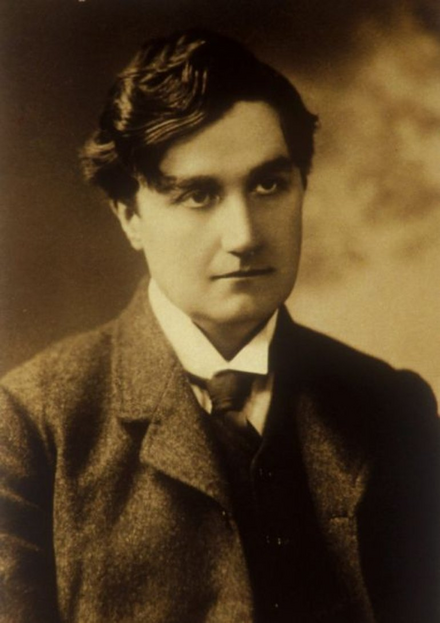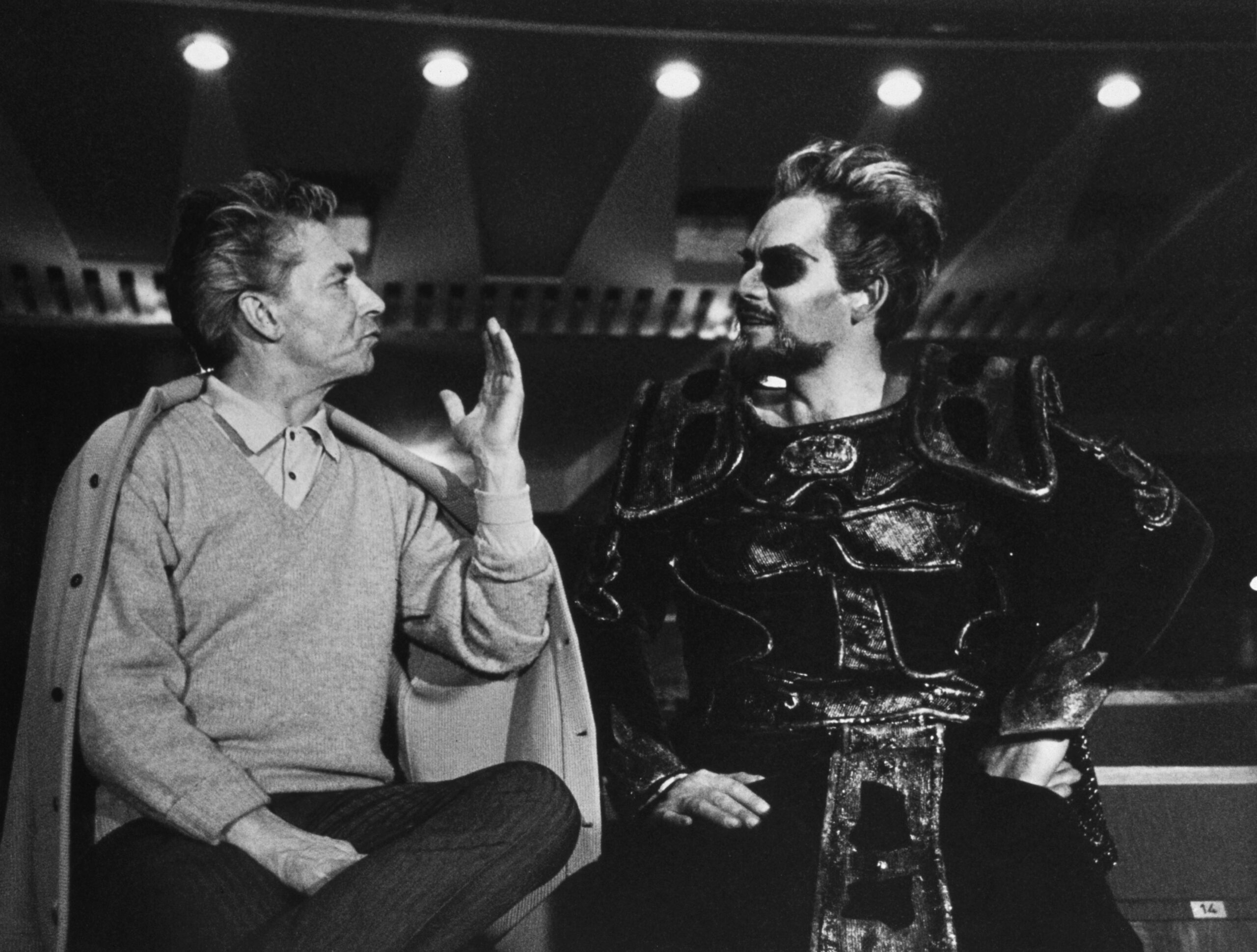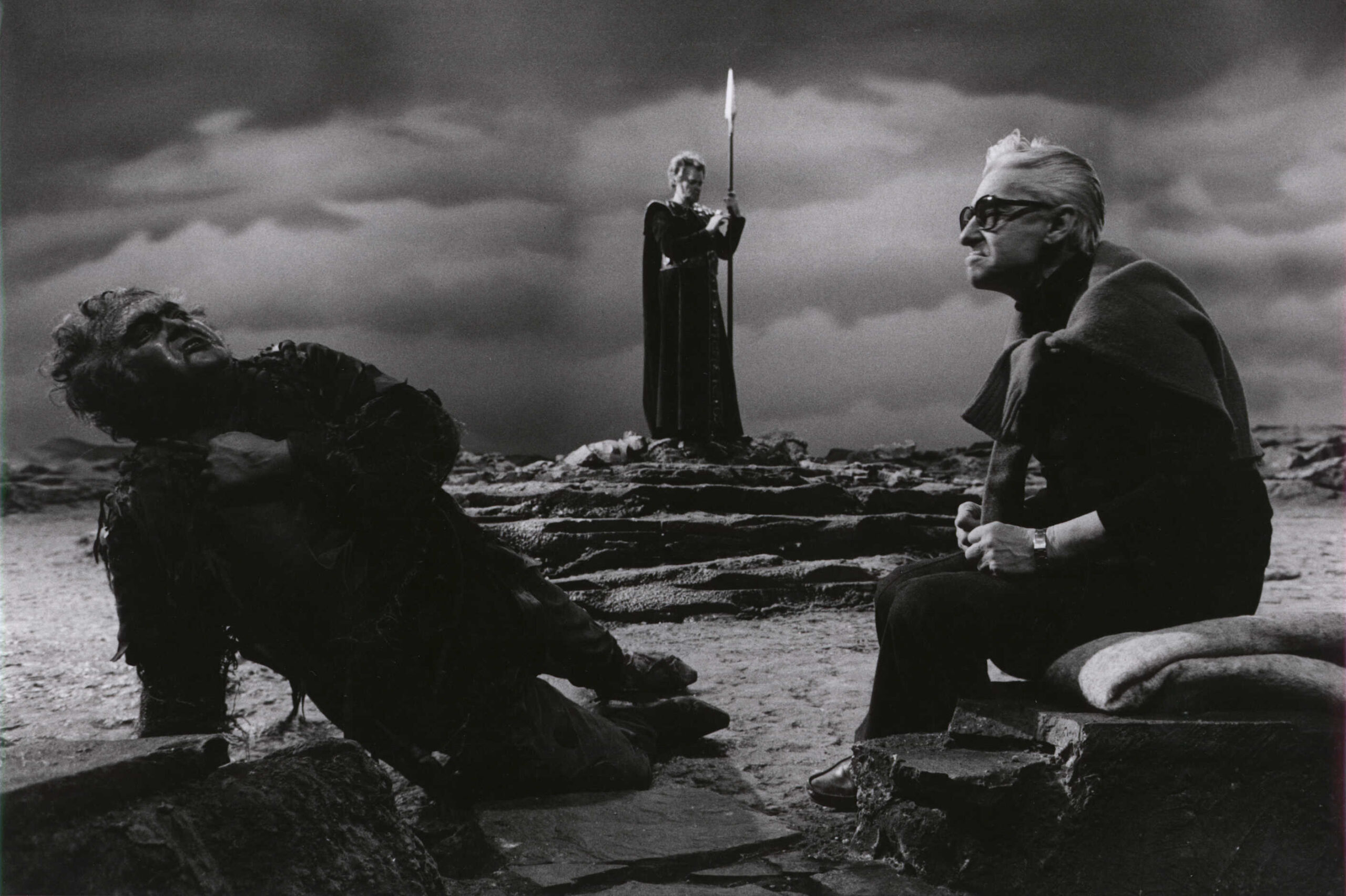14 June 2024
P.R. Jenkins
Spotlight Weber: seven overtures
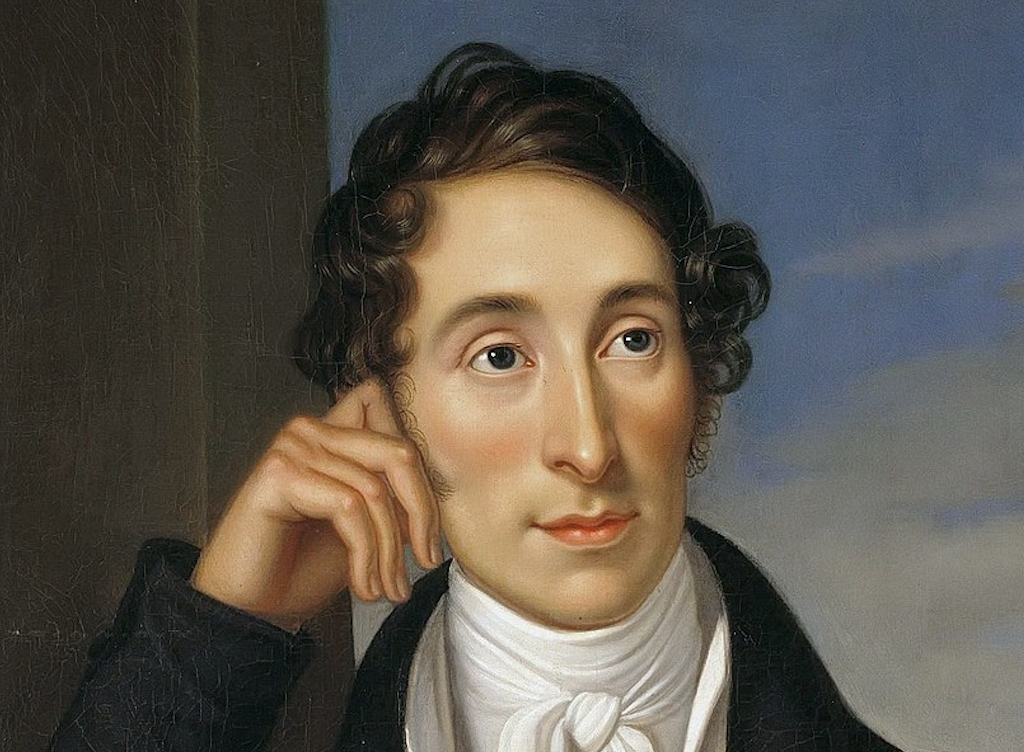
“Weber was the first composer with a sense of living nature.”
Karajan in 1967
Carl Maria von Weber was Karajan’s composer for the really important moments. It is astonishing that Weber appears at literally every milestone in Karajan’s early years. On 3 November 1927, studying already at the Vienna Conservatory he wrote to his parents: “Recently, I did my very first bit of conducting – Weber’s ‘Euryanthe’ Overture. After ten minutes, conductor and orchestra understood each other perfectly.” In November 1931, a symphony concert took place which Karajan’s biographer Richard Osborne called “his first concert appearance in Ulm”. Osborne claims that the “Euryanthe” Overture was on the programme that evening (“his old set-text from his student days in Vienna”). It isn’t listed in our database but it may still be true. The next crucial Weber performance was his audition for the Kapellmeister job in Aachen on 8 June 1934. Karajan conducted Mozart and Wagner but started with Weber’s “Oberon” Overture. He got the job, became “Generalmusikdirektor” in the following year and started to build up his international career. As “Opernkapellmeister” in Aachen for three months, Karajan stepped in for a colleague to conduct his first symphony concert. On 8 December 1934, he started once again with Weber’s “Euryanthe” Overture followed by Tchaikovsky’s violin concerto and Brahms’ 1st symphony. It was a huge success. Many years later, on 18 February 1945, when he was no longer in Aachen, his last concert in wartime Berlin with the Staatskapelle included the “Freischütz” overture.
Karajan’s first studio recording of a piece by Weber was also the “Freischütz” overture during his only session with the famous Concertgebouw Orchestra Amsterdam in September 1943. After the war, he conducted several single recordings of Weber overtures – “Euryanthe” (with the RAI Orchestra Roma in 1953), “Invitation to Dance” orch. by Berlioz (with the Philharmonia Orchestra in 1958) and “Der Freischütz” (with the Berlin Philharmonic in 1960). His only all-Weber album was recorded in the early 1970s with the Berlin Philharmonic. It contained the well-known overtures “Freischütz”, “Oberon”, “Euryanthe” and “Invitation to Dance” and some less-known pieces that Karajan only conducted on this occasion – “Abu Hassan”, “Peter Schmoll” and “Ruler of the Spirits”. Karajan conducted his “Valkyrie” production in New York in 1967 and was interviewed by the “New York Times Magazine”. About the relation between Weber and Wagner he said: “It is there, of course. Weber was the first composer with a sense of living nature which goes through all Wagner’s work. If you do not carry this sense of the identity of music and nature you are not telling the truth to the audience. What is the Ring in the end but a parable of violated nature?”
Karajan’s last encounter with Weber was the recording and filming of the “Freischütz” overture at the 1985 New Year’s Eve Concert in Berlin.
Weber’s greatest success and his only opera still in the repertoire is the magnificent “Freischütz”. It is a pity that Karajan never conducted it in its entirety. He offered Carlos Kleiber – whose 1973 recording of the opera is still a reference – to conduct a Salzburg production in 1988 but that did not come about either. Our institute has in its possession the letters Karajan and Kleiber wrote about that subject.
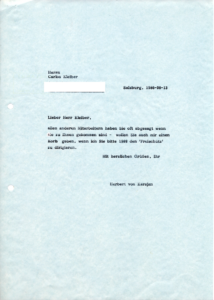
Dear Herr Kleiber, Salzburg, 13 August 1986
You have often refused when anyone from the staff of the Salzburg Festival invited you to Salzburg. Would you turn me down too if I asked you to conduct “Der Freischütz” in 1988?
Sincerely yours,
Herbert von Karajan
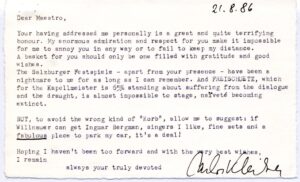
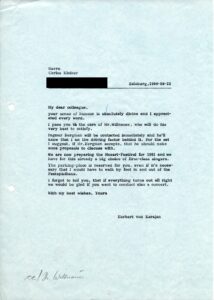
We’ve prepared playlists with Karajan conducting Weber. Listen to them here.
— P.R. Jenkins
Richard Osborne: “Karajan. A Life in Music” Chatto & Windus, London. 1998
New York Times Magazine, 3 December 1967, 156.
